I have prepared a setup for 2 Xbees one connected to the PC via XCTU and the other interfaced with Atmega 168. The terminal software will send 1 and the xbee with Atmega 168 will return 1.
The code is as follows.
#include<avr/io.h>
#include<avr/interrupt.h>
#include<util/delay.h>
unsigned char data; //to store received data from UDR1
//Function To Initialize UART0
// desired baud rate:9600
// char size: 8 bit
// parity: Disabled
void uart0_init(void)
{
UCSR0B = 0x00; //disable while setting baud rate
UCSR0A = 0x00;
UCSR0C = 0x06;
UBRR0L = 0x06; //set baud rate lo
UBRR0H = 0x00; //set baud rate hi
UCSR0B = 0x98;
}
ISR(USART_RX_vect) // ISR for receive complete interrupt
{
data = UDR0; //making copy of data from UDR0 in 'data' variable
if(data == 0x31)
UDR0 = data; //echo data back to PC
}
//Function To Initialize all The Devices
void init_devices()
{
cli(); //Clears the global interrupts
uart0_init(); //Initailize UART0 for serial communiaction
sei(); //Enables the global interrupts
}
//Main Function
int main(void)
{
init_devices();
while(1);
}
This code works well and the following is the desired and the obtained output...

Now the problem is when I want to get reply 3 for a transmission of 3 from the PC. I am using avr studio 4 (yeah I know I am backdated) and Atmega 168PA-PU. The configuration for both cases is as shown in the image...

So I copied the previous program totally and just changed the line
ISR(USART_RX_vect) // ISR for receive complete interrupt
{
data = UDR0; //making copy of data from UDR0 in 'data' variable
if(data == 0x31)
UDR0 = data; //echo data back to PC
}
to the following
ISR(USART_RX_vect) // ISR for receive complete interrupt
{
data = UDR0; //making copy of data from UDR0 in 'data' variable
if(data == 0x33)
UDR0 = data; //echo data back to PC
}
But the obtained output is nowhere near what its supposed to be. The following image should clarify.

PS: We used separate (Atmega 168A-PU & Atmega 168PA-PU) for the two programs. It may so happen that there is some discrepancy in the internal oscillator. I have read somewhere that there can be a +/-10% inaccuracy.